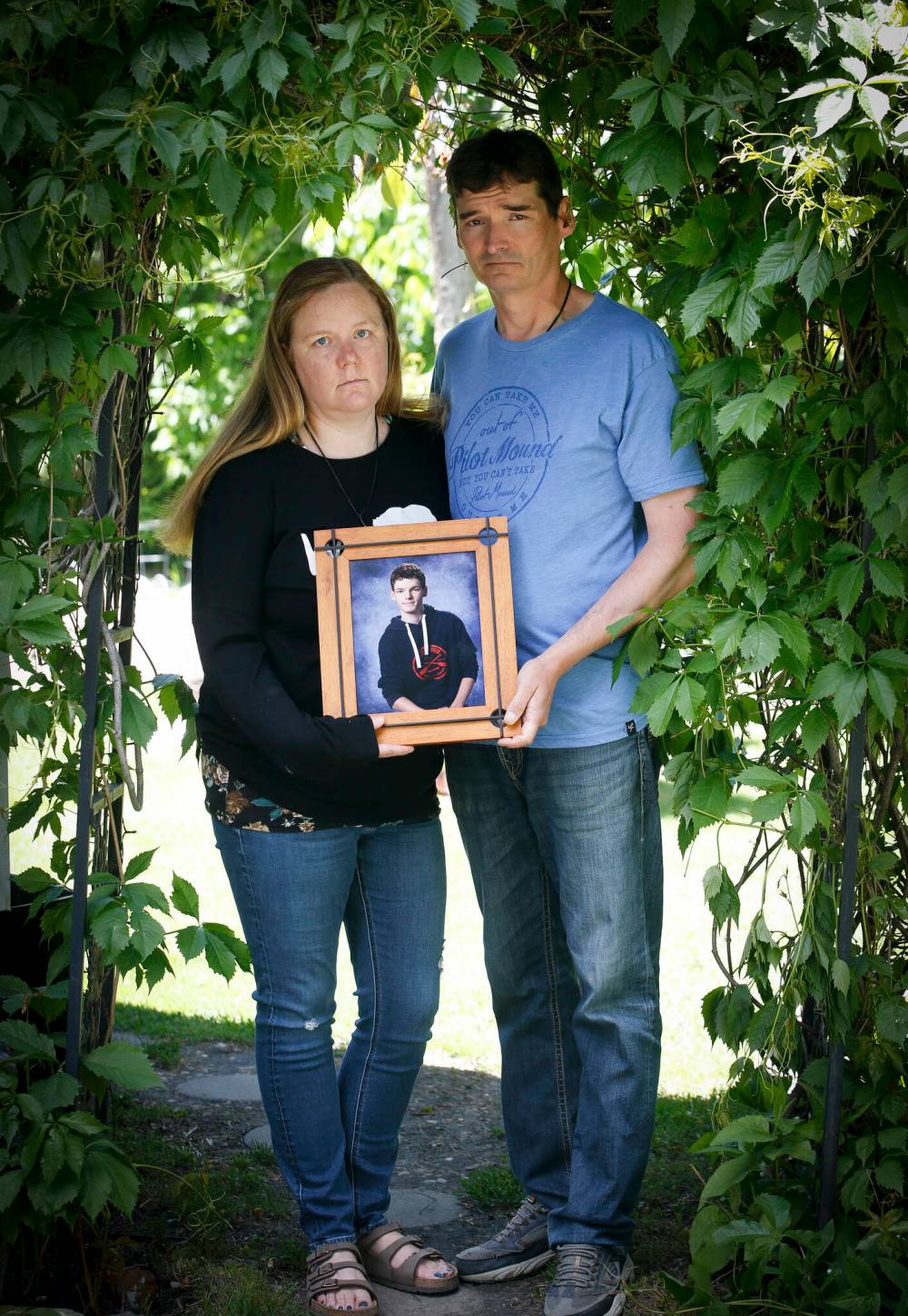Action needed to curb sexploitation
Read this article for free:
or
Already have an account? Log in here »
To continue reading, please subscribe:
Monthly Digital Subscription
$0 for the first 4 weeks*
- Enjoy unlimited reading on winnipegfreepress.com
- Read the E-Edition, our digital replica newspaper
- Access News Break, our award-winning app
- Play interactive puzzles
*No charge for 4 weeks then price increases to the regular rate of $19.00 plus GST every four weeks. Offer available to new and qualified returning subscribers only. Cancel any time.
Monthly Digital Subscription
$4.75/week*
- Enjoy unlimited reading on winnipegfreepress.com
- Read the E-Edition, our digital replica newspaper
- Access News Break, our award-winning app
- Play interactive puzzles
*Billed as $19 plus GST every four weeks. Cancel any time.
To continue reading, please subscribe:
Add Free Press access to your Brandon Sun subscription for only an additional
$1 for the first 4 weeks*
*Your next subscription payment will increase by $1.00 and you will be charged $16.99 plus GST for four weeks. After four weeks, your payment will increase to $23.99 plus GST every four weeks.
Read unlimited articles for free today:
or
Already have an account? Log in here »
Hey there, time traveller!
This article was published 21/06/2022 (1267 days ago), so information in it may no longer be current.
The growing need to govern content provided by social-media companies has hit home in a devastating way for a Pilot Mound family. Daniel Lints, 17, died by suicide after he was blackmailed.
Global sextortion targets teenage boys

Posted:
PILOT MOUND, Man. - Daniel Lints was kind and responsible with a witty sense of humour. The rural Manitoba teenager had a bright future and loving family. He played hockey and was a constant visitor to the nearby community pool.
The Lints family is sharing Daniel’s story to alert the public about a burgeoning global scheme that targets teenage boys. The exploitation started when Daniel accepted a message request on Snapchat from what appeared to be a young woman who subsequently asked him to send an explicit image of himself. That set the trap and, within minutes, Daniel was told his private image would be shared with his family and friends unless he paid up more money than he had.
The entire situation — from first contact to Daniel’s decision that he couldn’t live with the imagined shame of his intimate image being widely viewed — played out in only three hours.
Tragically, this vile ploy has been attempted more than ever during that past two years as pandemic restrictions on in-person activities forced more people to resort to online relationships. The RCMP’s child exploitation centre recorded 52,306 complaints for the year 2020-21, a 510 per cent increase from seven years earlier.
Misusing explicit images with criminal intent is nothing new, but this new and sordid twist seems to be targeting young men. The bait is a compelling picture of a young woman to initiate a fake online relationship and request an intimate picture of the victim, taking advantage of the immature impulsiveness that is a phase of development for some teenage boys.

Sextortion’s legacy of reputations ruined, and even young lives lost in some cases, has prompted frequent calls for governments to force Big Tech companies to monitor online content with more diligence, but it’s not a simple matter. Countries in the process of crafting regulations, including Australia and New Zealand, face concerns about government suppression of freedom of speech and the privacy rights of citizens.
The European Union recently pioneered a legal initiative to make social-media companies root out the dark side of their online content, which would include sextortion, hate speech and disinformation. A law passed in April gives regulators the power to hit companies like Facebook, Google and Amazon with billions in fines.
A problem with such enforcement is that online technology operates on a global basis. While 27 countries have signed on to the EU’s digital rulebook, predatory online operators can easily operate in countries with little or no moderation and, from the other side of the planet, exploit naive youth in places as remote as Pilot Mound.
The issues involved in policing online content were discussed recently in a Canadian Museum for Human Rights online forum hosted by Taylor Owen, an associate professor at McGill University in Montreal who is an expert in digital media ethics.
While 27 countries have signed on to the EU’s digital rulebook, predatory online operators can easily operate in countries with little or no moderation.
He urged Canadians to demand, through our laws, much more transparency in how Big Tech companies operate, in the same way pharmaceutical companies need to show their data as they develop drugs.
Mr. Owen is one of 12 members of an online safety advisory council recently formed by the Canadian government to create a regulatory framework to address harmful content online.
To underline the urgent need for such regulations, council members should be reminded that, even as they deliberate, Canadian teenagers will continue to receive deceptive invitations attached to what appear to be a photographs of attractive peers but are actually the bait employed by fraudsters intent only on sexploitation. There must be requisite urgency to the council’s efforts.







